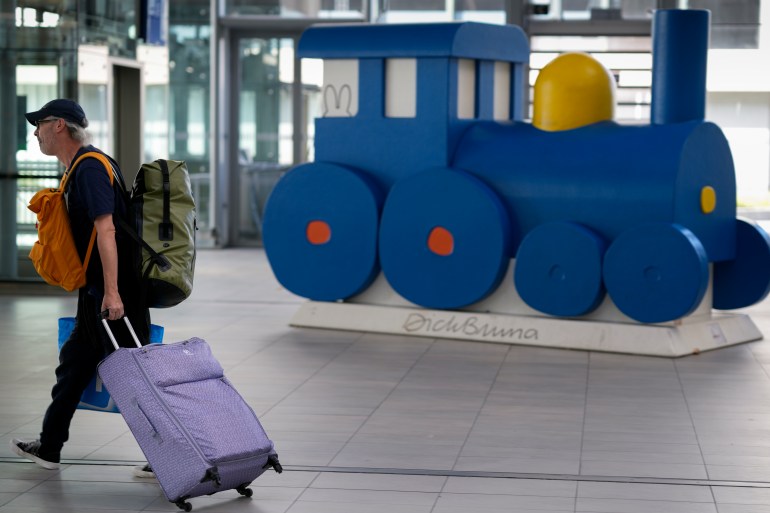Nearly entire train network shuts down in Netherlands over strike
Staff at the railway firm NS stop work in the central Netherlands region that acts as a hub for nearly all train lines.

Staff at the railway company Nederlandes Spoorwegen (NS) stopped work for the day on Tuesday in the central Netherlands region that acts as a hub for nearly all train lines, halting trains across the country.
An exception was the line linking Amsterdam with the busy Schiphol airport that returned to service after a strike shut it down on Monday.
Utrecht Centraal station, the country’s biggest rail hub and normally packed with travellers, was eerily deserted on Tuesday morning.
Screens showing train timetables were lit up with the word “cancelled” in red letters and a station announcer explained in Dutch and English that services were being hit by the strike.
NS said in a statement that international trains operated by Thalys and Eurostar were running again after being halted on Monday.
Schiphol said in a warning to travellers that NS had indicated that four trains an hour would run each way between the airport and the Dutch capital’s central station.
Labour unions have called a series of strikes on the Dutch rail network after negotiations on a new collective labour agreement broke down.

![Dutch Defence Minister Kajsa Ollongren pays tribute to the victims of the 1995 Srebrenica massacre, during a mass burial at the memorial cemetery in the village of Potocari, near eastern Bosnian town of Srebrenica, on July 11, 2022 [Elvis Barukcic/AFP]](https://www.aljazeera.com/wp-content/uploads/2022/07/000_32E922Q.jpg?resize=770%2C513)